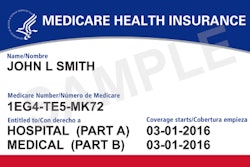The probability of an income-interrupting event over the course of your career trucking is more likely than you might think.
Three out of every 10 Americans between ages 35 and 65 will become disabled for more than 90 days at some point in their lives, according to the American Council of Life Insurers. One in seven will become disabled for more than five years.
An owner-operator working without adequate income-replacement coverage who experiences an on-the-job injury can be exposed to various hardships, including loss of income if unable to work. Any given plan will pay a percentage of your income with a flat rate maximum and only for a fixed period. The typical payout is 50% to 60% with a cap, though some may run up to 70%. Most policies will stay in effect as long as you stay current on your premiums, even if chronic health problems continue after your initial claim.
Occupational accident and disability policies, and in certain circumstances Social Security disability, are the most common income replacements available to owner-operators.
Occupational accident. Usually the most inexpensive coverage for owner-operators is an occ/acc policy. It provides benefits to the policyholder in the case of a work-related injury or illness, unlike a traditional accident policy that pays out even if the accident is not work-related.

Benefits are not based on income, but rather a menu that outlines the payment amounts for minor to major job-related injuries or illnesses. Some carry options or riders depending on what the policyholder wants.
Many fleets require leased owner-operators to obtain either workers’ compensation or occ/acc coverage, depending on the state's requirements and other factors. For this reason, many owner-operators don’t view occ/acc as elective coverage.
One thing that makes occ/acc the top choice is that it’s usually cheaper than workers’ comp. Also, in most states, workers’ comp won’t pay out to self-employed workers. This makes occ/acc an easy choice if your state’s workers’ comp regulations have an opt-out provision.
Disability. Disability insurance is offered with short-term and long-term plans that cover most accidents and illness whether they are job-related or not. Short-term disability typically will provide benefits for up to 26 weeks based on a percentage of income, with a fixed cap. Long-term policies take over where short-term policies leave off and usually pay benefits for two to five years, but can continue up to age 65-67 when Social Security and personal retirement savings normally come into play.
When it comes to the definition of disability, there are two distinct types: own occupation or any occupation.
The former means the disabling event occurred while on the job you had -- in your case, driving a truck -- and that it left you unable to perform your former job.
Any occupation disability means that if you are able to perform another job, you are not disabled. Your normal income is not taken into consideration. If you can be trained to work at another job -- even at minimum wage -- you probably won’t be able to collect benefits. Some policies that claim to be own-occupation have qualifiers that make them any-occupation, so pay attention to the fine print.
True own-occupation disability has become harder to find. It’s generally expensive, especially for occupations such as trucking that are deemed high-risk.
Qualifying for disability
Shop for a disability policy on the individual market, and you’ll typically have to qualify based on factors such as age and overall health -- these will determine how much you pay. You may be required to pass a basic physical to determine any existing or potential physical problem. The better shape you're in, the lower the premium.
Buying into a group policy, such as those administered through membership organizations like the Owner-Operator Independent Drivers Association and the National Association of Independent Truckers, may offer less-stringent requirements and lower premiums. It is likely that you will have to declare pre-existing conditions, which could mean no coverage for thefirst year.
SOCIAL SECURITY. If you become unable to work for more than 12 months, Social Security Disability Insurance may be an option, and it’s not based on income. You can qualify if you’re younger than full retirement age and meet these criteria:
- A physical or mental condition prevents the individual from engaging in any “substantial gainful activity.”
- The condition is expected to last at least 12 months or result in death.
- The person has accumulated 20 Social Security credits (credits are based on your earnings with a cap of four credits per year) in the past 10 years prior to the onset of disability (normally four credits per full or partial year); one additional credit is required for every year by which the worker’s age exceeds 42.
The filing process takes about four months, and the Social Security Administration denies about 60% of the initial claims.
If you are approved, you have to wait five months for the first check.
OTHER RESOURCES. Don’t spend so much money on income-replacement insurance that you starve your emergency or retirement fund. Remember, you’ll need that retirement money whatever happens, whereas you may never need the income-replacement benefits. If you have plenty of savings and are at a late stage in your career, maybe already reducing your workload, you may not need incomere-placement insurance at all.
Since six months of living expenses is relatively easy for a disciplined saver to sock away over time into an account, long-term disability policies may be better investments than short-term ones.
Claiming downtime in the event of an accident
As downtime-specialist attorney Kelsea Eckert has detailed in Overdrive before, compensation for lost income after an accident can be part of insurance claims when the other party to the accident is at fault. Most often for professional drivers, claims will be made to the insurance company of a passenger-vehicle driver also involved the accident.
Owners have a right to this compensation for lost income while waiting on damaged equipment to be repaired in almost all states. At-fault parties' insurance companies, however, may not volunteer the fact, so it’s important to prove the loss and push for your rightful compensation.
[Related: After the accident: Understanding downtime claims]
While litigation is sometimes the answer, the odds of resolving a claim successfully without it increase when the claim is effectively pursued. Kelsea Eckert advises that downtime claims may be especially viable depending on these conditions:
- Liability: As noted, if another driver is at fault, pursue a claim for the downtime you experienced while your truck was being repaired. In this type of case, you would typically file the claim against the at-fault party’s insurance. Make sure you provide clear proof of fault.
- Duration of downtime: The longer your truck is out of service, the more significant the financial loss. If repairs take weeks or months, you’re more likely to have grounds for a substantial downtime claim. However, if repairs don’t move at a reasonable pace, insurers may view the lost income as harder to justify. Having your own specific business interruption/downtime insurance coverage can help recover lost income, too, Eckert notes, yet having physical damage insurance in place with your insurer is often a prerequisite to adding such coverages.
- Repair or replacement timeline: The dollar amount of the downtime claim can hinge on how long it takes for the truck to get back on the road. If you experience significant delays beyond reasonable repair time, make sure to document the reasons and have experts back you up.
- Proof of lost income: To file a successful downtime claim, prove the income the truck would have earned if not sidelined. Use your detailed records of previous hauls, typical income, and any contracts that couldn’t be fulfilled due to the damages. Maintain meticulous records of all loads, contracts, and business dealings to strengthen any claim.
Read next: Health insurance for owner-operators: Covering personal risks is a cost of doing business








